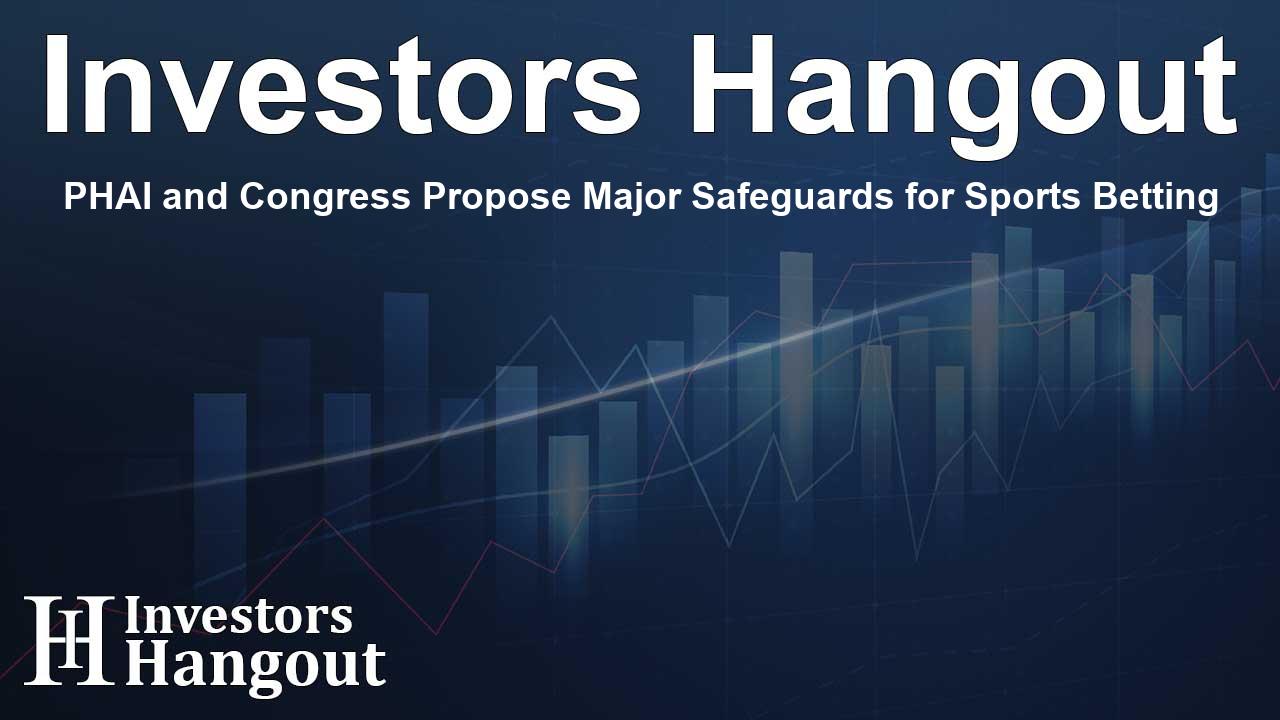PHAI and Congress Propose Major Safeguards for Sports Betting

PHAI Collaborates with Congressional Leaders to Launch SAFE Bet Act
The Public Health Advocacy Institute (PHAI), a significant non-profit legal research entity focused on public health law, stands with Congress to promote the SAFE Bet Act. Public health advocates express concern over the exponential rise in sports betting, and this new act aims to incorporate essential regulations aimed at safeguarding the community.
Understanding the SAFE Bet Act's Objectives
The SAFE Bet Act emerges as the first federal legislative endeavor to confront the vast public health implications of mobile sports betting, a topic that gained momentum following the legalization of sports betting in 2018. This pivotal act is designed to establish federal standards that would foster a safer and less addictive betting environment. With an emphasis on responsible participation, the standards will address crucial topics such as advertising, affordability, and the inherent risks presented by advanced technologies.
Advocacy for Public Health
Leading this charge, PHAI's President Richard Daynard emphasizes the necessity of protecting public health, stating, "PHAI's mission is to serve the greater good by seeking bold ideas to advance public health and justice." His comments underscore the organization’s commitment to facing the challenges posed by the burgeoning gambling industry. Daynard has drawn parallels between the current gambling industry tactics and the historical maneuvers of the tobacco sector, reinforcing the pressing nature of the public health crisis.
Key Supporters of the Initiative
Congressman Paul D. Tonko, along with Senator Richard Blumenthal, has been instrumental in advocating for the SAFE Bet Act. Their efforts stem from a heartfelt concern for families impacted by gambling addiction. During a press conference, Congressman Tonko remarked about the importance of reclaiming the enjoyment of sports events without the overshadowing presence of betting, which he notes has led to detrimental consequences for many. It is this collective duty they feel to protect individuals and families from the tragic fallout of gambling disorders.
A Call for National Standards
Senator Blumenthal echoed similar sentiments, urging the necessity of a national standard amidst a landscape where individual states have failed to effectively regulate the excesses and exploitative practices involved in sports betting. The SAFE Bet Act is framed not as a ban on gambling but as a necessary step towards restoring balance and control within the industry.
Legal Actions and Advocacy Efforts
In December 2023, PHAI took proactive legal steps by filing a class action suit against a prominent sports betting platform, bringing attention to practices deemed harmful to public health. This litigation is a testament to their commitment to addressing the issues at play and providing a balanced approach to the rapidly evolving landscape of the gambling industry.
Public Health as a Priority
PHAI’s Executive Director, Mark Gottlieb, emphasizes the importance of a comprehensive public health strategy toward gambling regulation. With his background in legal advocacy, Gottlieb aims to pivot the existing dynamics of the industry towards a more transparent and health-centric approach. Alongside him, PHAI’s Director of Gambling Policy, Dr. Harry Levant, advocates against the ineffective self-regulatory models endorsed by the gambling industry, arguing for legislative reform that prioritizes the welfare of individuals and communities.
The Legacy of Sports and Community Engagement
Sports have traditionally served as a communal activity where people gather to celebrate their favorite teams. However, with the rise of betting opportunities, every play has become an avenue for gambling. The SAFE Bet Act proposes to restore the spirit of sports by implementing necessary regulations designed to curtail the exploitative aspects of sports betting while maintaining the excitement of the game for the fans.
Frequently Asked Questions
What is the SAFE Bet Act?
The SAFE Bet Act is a legislative initiative aimed at creating federal regulations to address the public health risks associated with sports betting.
Who supports the SAFE Bet Act?
The SAFE Bet Act is supported by PHAI, Congressman Paul D. Tonko, and Senator Richard Blumenthal.
What are the main objectives of the SAFE Bet Act?
Its key objectives include establishing federal standards for advertising, affordability, and addressing the use of artificial intelligence in sports betting.
How does PHAI work to address gambling-related issues?
PHAI employs litigation and advocacy efforts to promote public health and hold the gambling industry accountable.
Why are national standards important for sports betting?
National standards are crucial to protect citizens from the excesses and exploitative practices that can arise in a rapidly expanding gambling industry.
About Investors Hangout
Investors Hangout is a leading online stock forum for financial discussion and learning, offering a wide range of free tools and resources. It draws in traders of all levels, who exchange market knowledge, investigate trading tactics, and keep an eye on industry developments in real time. Featuring financial articles, stock message boards, quotes, charts, company profiles, and live news updates. Through cooperative learning and a wealth of informational resources, it helps users from novices creating their first portfolios to experts honing their techniques. Join Investors Hangout today: https://investorshangout.com/
Disclaimer: The content of this article is solely for general informational purposes only; it does not represent legal, financial, or investment advice. Investors Hangout does not offer financial advice; the author is not a licensed financial advisor. Consult a qualified advisor before making any financial or investment decisions based on this article. The author's interpretation of publicly available data shapes the opinions presented here; as a result, they should not be taken as advice to purchase, sell, or hold any securities mentioned or any other investments. The author does not guarantee the accuracy, completeness, or timeliness of any material, providing it "as is." Information and market conditions may change; past performance is not indicative of future outcomes. If any of the material offered here is inaccurate, please contact us for corrections.